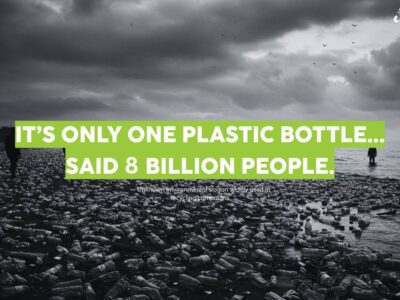The Challenge of Regulating the Ordinary
The title is a play on a great paper of Holly’s about the converse challenge of saving the ordinary. Whether the ordinary is good or bad, however, it tends to escape our interest and attention because it’s so darn . . . ordinary.
Case in point: nitrogen pollution. We emit a lot of nitrogen oxides into the atmosphere, while dumping a lot of nitrogen into rivers and streams because of excessive fertilizer use by farmers. Sounds like it could be a problem, but not that serious. Yet, this could be one of the ways that we’re pushing the planet’s systems beyond recovery (not in the sense that the world will be destroyed but in the sense that the new equilibrium may be really different and worse for us.)
According to an article in Environment360,
Nitrogen affects more parts of the planet’s life-support systems than almost any other element, says James Galloway of the University of Virginia, who predicts: “In the worst-case scenario, we will move towards a nitrogen-saturated planet, with polluted and reduced biodiversity, increased human health risks and an even more perturbed greenhouse gas balance.”
Where does the problem come from?
Most of the man-made nitrogen fertilizer ever produced has been applied to fields in the last quarter-century. Nature has some ability to reverse man-made fixing of nitrogen, converting it back into an inert gas — a process called denitrification. But last year, Patrick Mulholland of the Oak Ridge National Laboratory in Tennessee reported that the system is being overwhelmed. Many rivers in the U.S. are now so nitrogen-saturated that they are losing their ability to denitrify pollution.
Most of this excess nitrogen ends up in the oceans, where it is killing whole ecosystems. Excess nitrogen is the cause of the growing number of oxygen-depleted “dead zones” in the oceans, says Mulholland.
Part of the answer is better farm management; part of it is better plants. Don’t tell anyone I said this, but we might need a bit of genetic engineering here so more plants would be able to fix their own nitrogen like legumes.
Reader Comments
One Reply to “The Challenge of Regulating the Ordinary”
Comments are closed.






If anyone is interested in additional discussion on the potential risks and benefits of genetic engineering for sustainable agriculture, I recommend http://scienceblogs.com/tomorrowstable/. The site’s author is a U.C. Davis plant genetics professor who is married to an organic gardener. They wrote a pretty fair-minded book for popular audiences on the subject called Tomorrow’s Table.